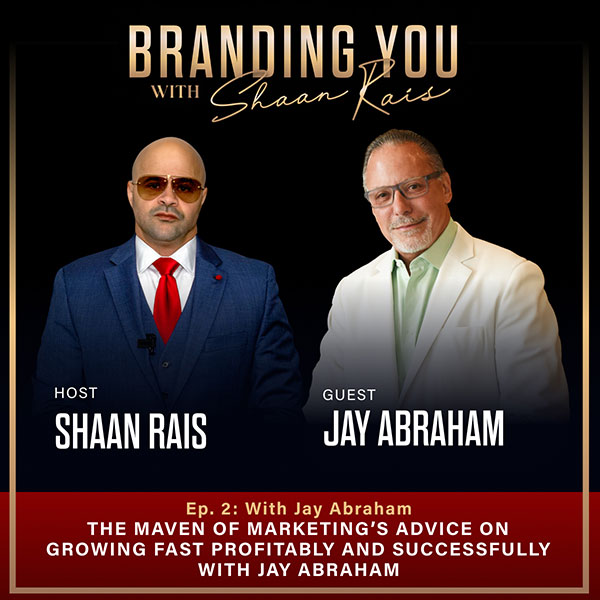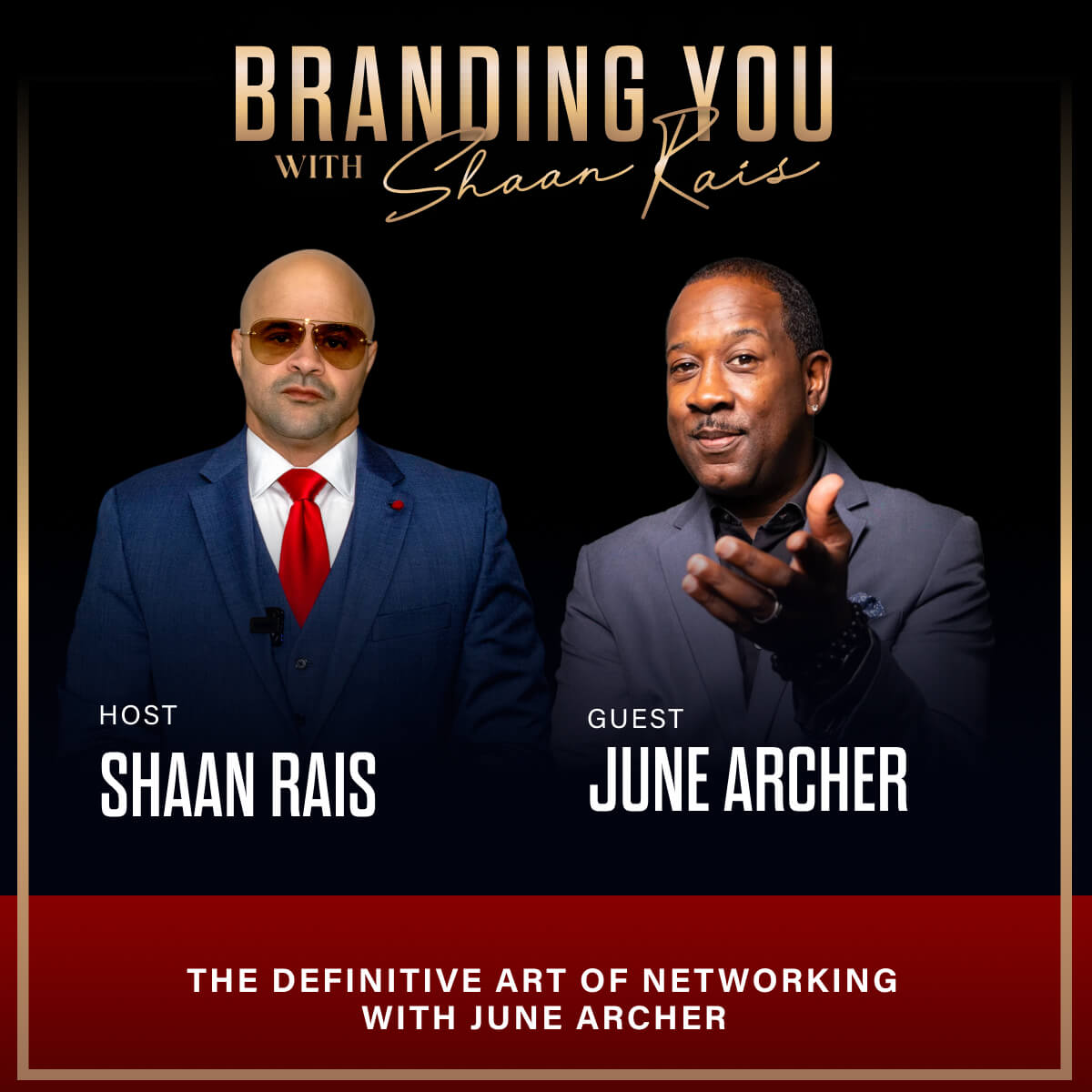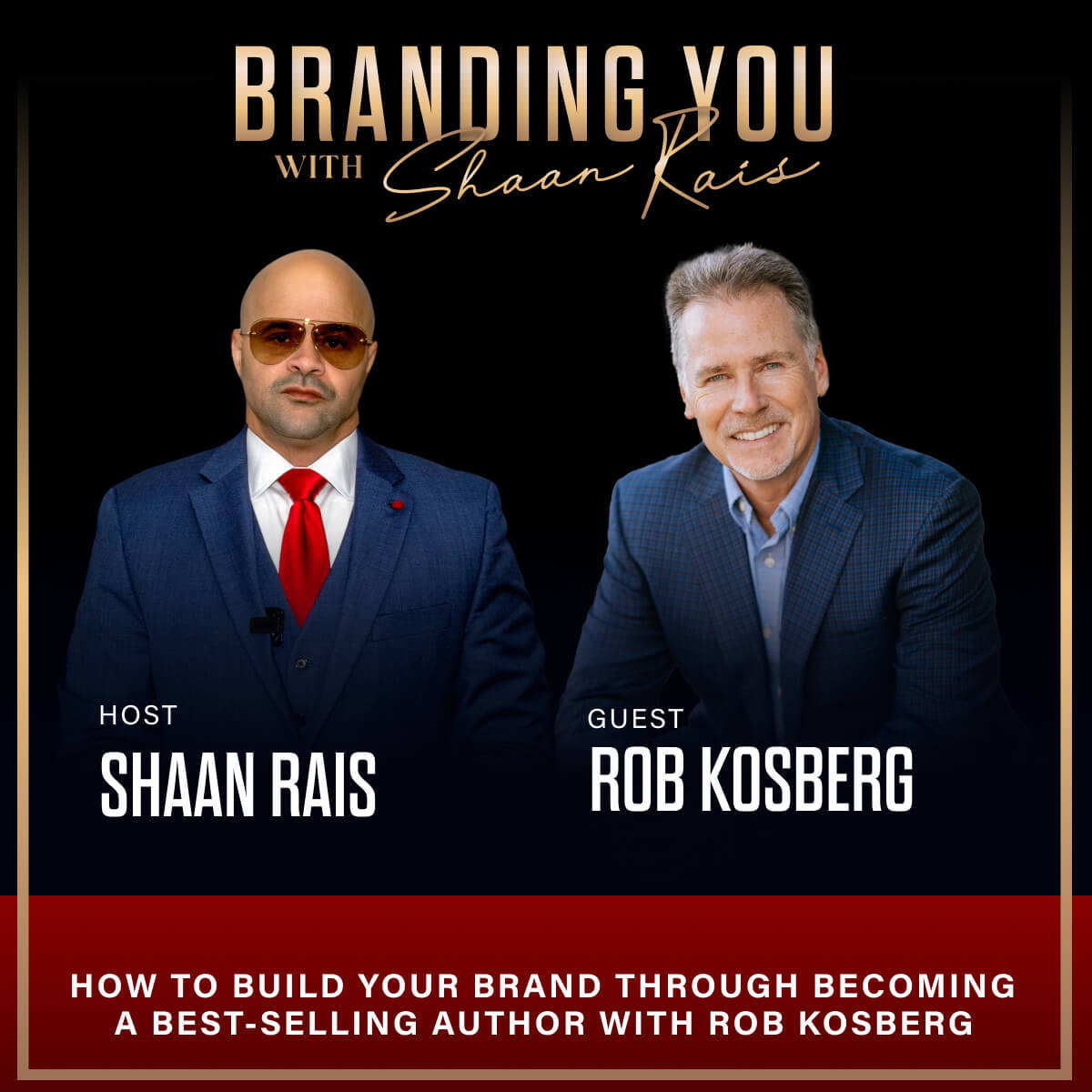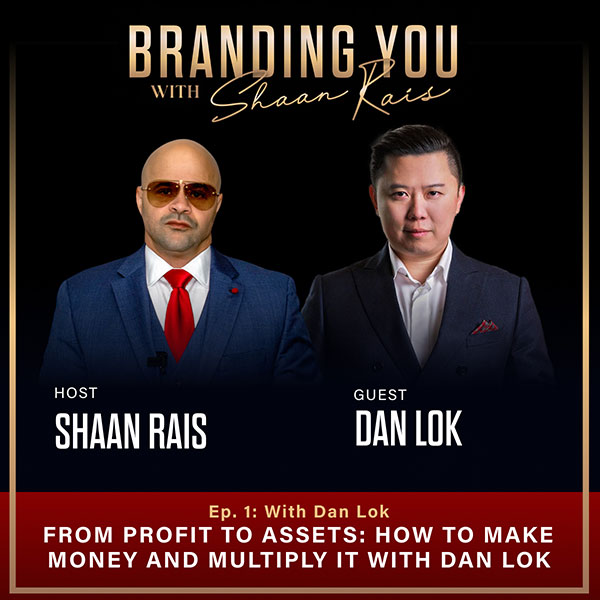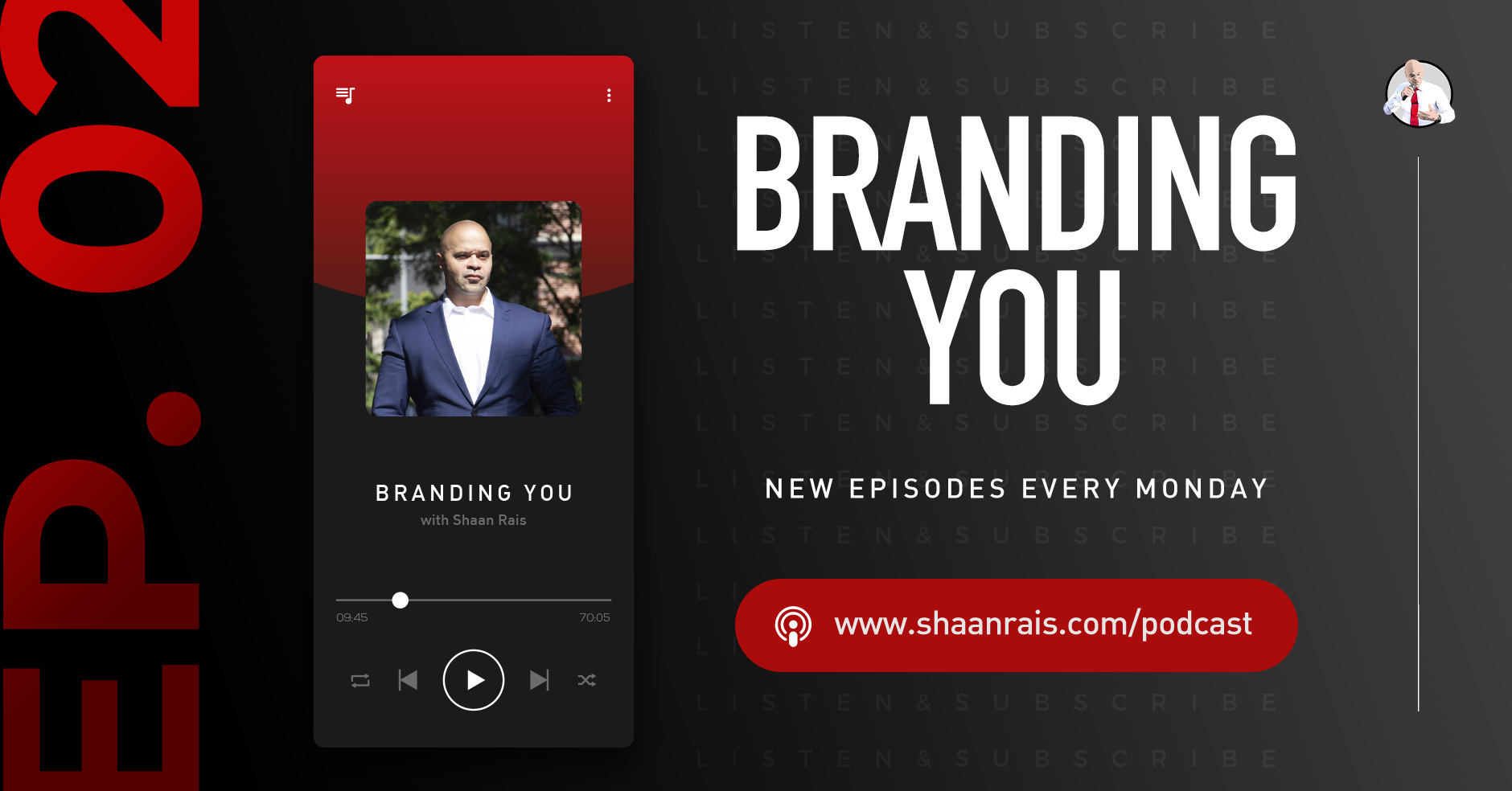
Most people fall in love with making money, or they fall in love with their product, service, company, or industry. However, for Jay Abraham, the Maven of Marketing, the most effective marketing is to fall in love with your audience. In this episode, we have the honor to hear from the godfather, icon, and the mentors’ mentor about finding success in business through the right marketing. Jay joins host Shaan Rais to discuss the power of relationships, the ideal client, and personal branding. He takes us across his amazing career journey, giving us a lot of inspiration on what it takes to find success even in unconventional paths. Tune in to this conversation and learn more about what it takes to grow fast profitably and successfully.
—
Listen to the podcast here
The Maven Of Marketing’s Advice On Growing Fast Profitably And Successfully With Jay Abraham
I’m joined by none other than the maven of marketing. He’s the godfather, icon, and one that all of the mentors refer to as their mentor. He’s the phenomenal, Jay Abraham. Thank you so much for joining me.
It’s my pleasure. That’s very complimentary. I appreciate that. I am here to serve. How are we going to serve your audience?
We want to run down a little bit about how you became who you are. I’m going to introduce my audience to you. A lot of them know about you but some of them don’t. Those who don’t are in for a treat and for a ride. Before we even get started, I want them to buckle in. Your language is prolific. We know your insights are vast and grand. I referred to you as a mentor before I was able to come and meet you. When I came to Redondo Beach, I was able to touch the hem of his garment. Tell us a little bit about your start and how you began. What does that look like for you?
It was tough, but it turned out to be very propitious. I’ve been married a number of times. I got married for the first time when I was 18 and had 2 children at 20. I had the need of somebody who’s 40. The world didn’t care. I had no education and still don’t. The only people that would give me the opportunity are not jobs. They were crazy entrepreneurs, the very brilliant ones, who saw in me more than I saw in myself. They wouldn’t give me a salary. They would give me an “eat what you earn” share of performance, so much of lead, deal, distribution channel, and profit. When you earn when you eat, you learn what works best and what doesn’t work, and you learn it very quickly.
I was never 8:00 to 5:00 because they didn’t care if I worked 1 minute or 20 hours. They just cared about the results I delivered. I was to do many things at the same time. As luck would have it, and this was the fortunate part, I did many things always at the same time. It’s not at the same hour, but I mean at the same period. I might have 3 deals going this month and maybe have 4 deals next month, but they were always very accidental and fortunately in different industries.
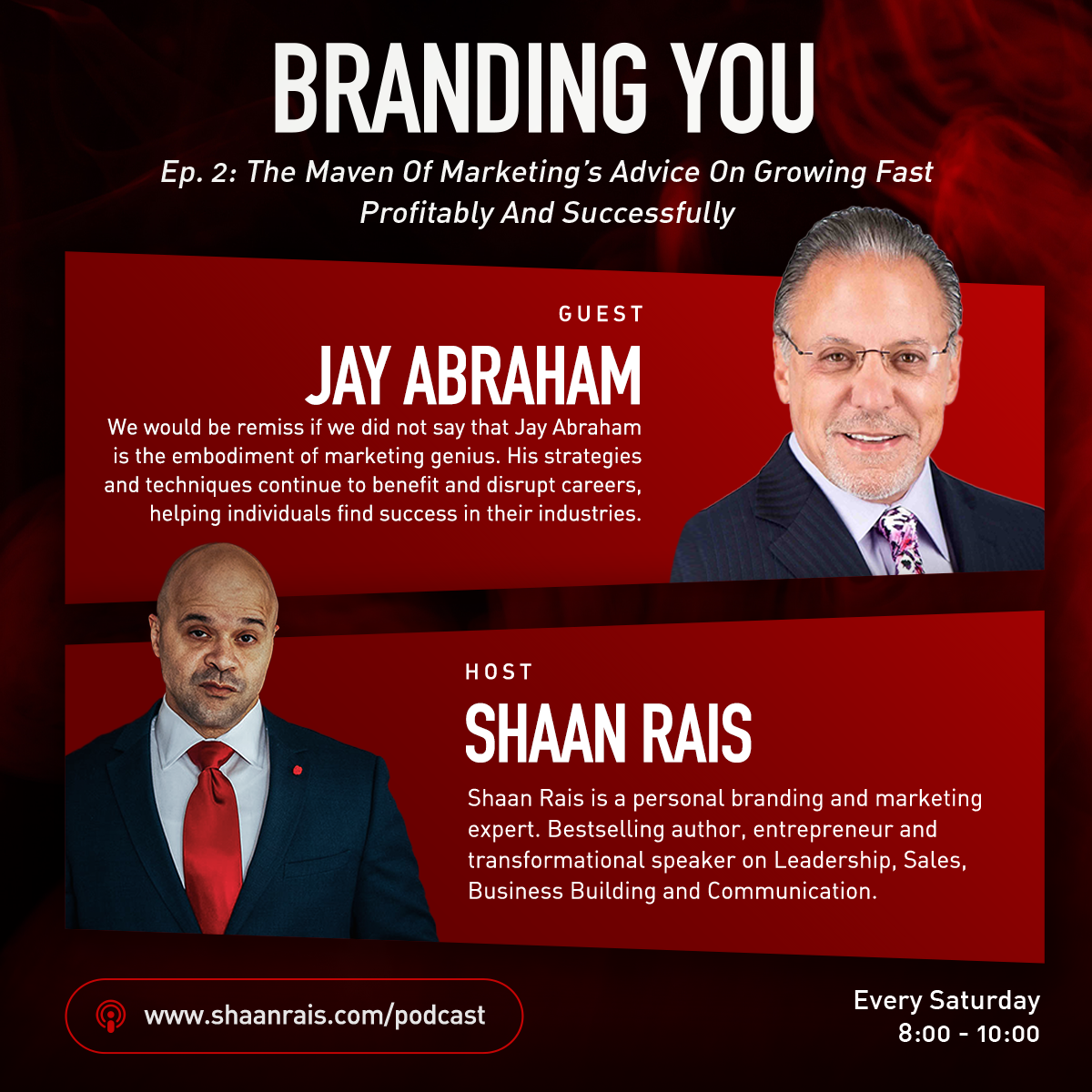
After about ten unrelated industry observations, experiences, and interactions, I realized that people in one industry didn’t have a clue how people in other industries thought and marketed, and how they differed in strategy approaches, business models, value creation, and lead conversion. I was able to take simple and commonplace approaches from one industry I’d been exposed to. I sometimes added to another one from another industry, combine them into hybrids, and then take them into a third industry that I was operating in or active in at that moment.
It was like the one-eyed man in the land of the blind. It was very basic, but they didn’t know it. The people I was helping exploded. We did Icy Hot when it first started and we grew the company by 20,000% in the first year. We got them 500,000 new users in 13 or 14 months for no fixed expense. We got over $100 million of today’s value of advertising for nothing. We built a 5,000 network distribution channel, all without spending much of anything. I did Entrepreneur Magazine. We grew it by about 900% in less than a year. That was pretty amazing. We dramatically multiplied the profit more than I did. I did about 40 of the newsletters that are still very profitable now, the Agora Group, and all those things.
Over time, as a reference, I’ve been blessed as I evolved in my ability and my maturity. I’ve done people like Tony Robbins, Brian Tracy, Stephen Covey, and everybody. I’ve helped Anthony Scaramucci, Daymond John, and people in over a thousand industries. I’ve helped Success Magazine and Entrepreneur Magazine. The people in Planet Fitness use my concepts. The people that wrote Chicken Soup for the Soul books years ago sold $100 million worth using my methods. We have helped the co-founder of FedEx and the co-CEO of Keller Williams and a lot of people. I’ve had a very interesting career.
That’s one of the reasons why I feel blessed and honored to have you here. I found out about you through a mentorship model. I was looking for mentors. I was young, not knowing what to do, and inexperienced. I was educated but not economically affluent. I went to the gurus or the sages for mentorship and leadership like Tony Robbins, Brian Tracy, Dan Lok, Grant Cardone, and everyone.
When I spoke to them, all referenced Jay Abraham. I’m like, “I need to find out more.” Every time that I saw you come out of let’s say a Business Mastery or 10X Conference, you’re very humble, statesmanlike, and self-spoken but effective. I don’t think everybody gets an understanding of what’s effective in this marketplace. If there was one thing primarily that we could lead the audience into one of the main lynchpins or cinch pins to be effective in marketing in this space, what would that one thing be?
It’s a big gap that became very evident over the years when younger people who understood technology became gurus very quickly and without a lot of depth. It’s that most people don’t try to understand, appreciate, empathize, respect, acknowledge, and grasp what it’s like to be in the mind, soul, and heart of their audience.
The more you can speak to someone because you appreciate and know them, the more powerful, authentic, effective, and profitable you’ll become. It’s not a singular marketing technique, but it’s a very rare business connecting technique. I’m talking abruptly. I have about 90 categories of higher-performing profit and revenue growth that I’ve created over my career. One of them is called The Strategy Of Preeminence. It’s about how to elevate the stature of your company, product, service, people, and yourself.
The more you can speak to someone because you appreciate and know them, the more powerful, authentic, effective, and profitable you’ll become.
If you’re either the focal head, a lifestyle entrepreneur, or an influencer to the point of being the most trusted advisor in the category, and the only viable solution they could turn to for life. One of the keys, because it’s got many elements, is if you want to be preeminent, you reshift your focus. Most people fall in love with making money or they fall in love with their product, service, company, or industry. If instead you fall in love with the audience you serve and you live with a vision of your product or service, when it’s actively deployed in people’s lives, making life better, protecting, enriching, enhancing, entertaining, and whatever it is, you have a greater advantage because it drives an authenticity, a communication power, and a connectivity that your competitors can’t possibly match or mirror.
Let’s get into the psychology of the client. What, in your idea, makes the ideal client? How do you weigh that? What does that look like through your eyes? When we look at you, we are looking through many years accumulated and many experiences that it’s hard for a marketer to understand. You have probably more strategies than most people will ever accumulate. I can remember Dan Lok saying that he had all of the boxes full of your content when it was in cassette tape form and written word.
You’re showing my age. When you talk about clients, are you asking me the kind of clients I want or the kind of clients I tell people they should want because those two are different? Neither of them is good or bad, but I want to answer the question you’re asking.
Let’s talk about the audience first and then we’ll talk about the clients that you want. What kind of clients should they look for? What does that look like?
I believe you should polarize. It’s better to be loved or hated than tolerated. You have to have a differentiation that is not just clear but speaks to the audience you want. You have to know the audience you can best serve. You have to know how you can convey to them what your product service does either better or differently. If the product is no better or different, you have to show the difference between your company, providing the product, or if the company is no different from the person running the company. You have to find that point of not just differentiation but resonate so that differentiation resonates and speaks on a polarizing basis to the people that want what you offer.
First of all, you have to look for people who want somebody who they feel has their best interest at heart. If all you’re selling is a low-price commodity, you’ll never win. That doesn’t mean you can’t sell a very economically priced product or service. It means you still have to command a preeminent positioning for it. If all you do is allow yourself to be rudderless and undistinguishable, even at the low end, you’ll never win. You’ll just be a short-term benefit. You have to be very clear on what you are and what you’re not to your audience.
I always think if you find niches, you’ll be much more successful by and large than trying to be a generalist. When you find niches, then you can own them as opposed to trying to compete in the open water with everybody. You might have a speedboat, but out in the middle of the ocean, you’re competing against aircraft carriers, submarines, and things that are way beyond your navigability.
If you have a niche you own, then you can own that forever and you can be stealthy. Optimally, you should be in a business or you should modify your business so that it has a significant amount of ongoing recurring purchase power to it. It’s not just because you want the biggest and largest lifetime value, but it gives you a lot more allowable cost you can invest to acquire a buyer. You have an advantage over everyone else. If you only have one product or service you sell, and there’s a fair but not an exorbitant profit in it, you don’t have a lot of marketing, selling, or acquisition flexibility.
If you either have a lot of repeats or you can partner, develop, or acquire lots of other products or services that people can buy from you over and over again, you multiply dramatically the value of a buyer. They’re not just buying once and you have a limited profit, but they’re buying many times. If you spend a lot more of the first profit, it’s not important because you’re investing for the repeat purchase. You have a lot more advantages because you can invest a lot more in marketing, sales commission, price reduction, bonuses, or all of the above. There are a lot of things.
One of the things that I learned from you that I have to give you credit for is the power of relationships. You’ve always drilled that into me even vicariously. Before we met, I always heard the relationships, the mastery of referrals, the power of long-term relationships, how you can leverage those, the science of leverage points, how you can intersect through your relationships, and create ongoing never ending lifetime values. With the people that you’ve mentored and the relationships that you’ve built, what is your advice toward our audience as far as relational capital?
If you’re in any business and you try to win, first and foremost, by competing in the open market, it’s very challenging. If you can find partners who already have relationships with the same audience you want and you can get them to put the full force of their credibility, the trust they’ve created, and direct access, you can shorten the timeline, eliminate speculative marketing, and become credible overnight. You can shorten the timeline of the sales cycle.
Wherever possible, figure out who already has a relationship with the same audience you’re trying to reach that has been a hard one. Meaning, they’ve spent a lot of time, effort, performance, credibility, and money resources. Do it and try to partner with them because it’ll be a very faster way to gain enormous rapid success.
As an example, we did a $250 million seminar when I was more like your age. That was a lot twenty years ago. We did it by finding about 40 people, including Tony Robbins, in-flight magazines, newsletters, and authors who all had access to the audiences I wanted. They partnered with me. I spent almost nothing on fixed advertising. I gave them a share of the revenue for their endorsement, promotion, and recommendations. Do that whenever possible.
As far as another aspect of relational capital or relationships, you can use relationships in your business world far more advantageously. You might have a vendor who if you show him or her that if they funded marketing or a salesperson or force that you don’t currently have to generate more sales, and you gave them an oversized compensation for the business that came from that, they would make a lot of future profit. If they wouldn’t do it, you might get a competitive vendor that wanted your business to do it.
You might find that within the list of prospects or buyers, there were people that had influenced large groups you’d never thought about and who might be able to introduce you to their groups for you. In terms of relationships, you might think that your smaller or medium-sized business has limited versus capital money expertise or a limited bench with not as many talented people. If you have relationships with people, companies, and experts that possess what you are lacking, you can almost always get them to provide it in a collaborative way where you only pay for results, revenue, or savings, or you share services. It has an infinite number of applications.

Another way that relationships are very valuable is most small-medium business owners spend most of their life in 1 or 2 industries, fields, or categories. They’re nose to the grindstone because most of them don’t have a deep team of high-level people. They wear many hats. They have a limited scope of their worldview. Their experience and knowledge base is limited. If you want to use relationships another way, you build mastermind networks, mentorships, and a board of advisors. You’re tapping into other people that have the knowledge you have not yet grasped, people who’ve been through activities, endeavors, experiences, challenges, problems, and opportunities. You don’t even yet know people who have more maturity and who know how to navigate or circumnavigate. There are a couple of other areas.
I’m going to impress upon everybody paying attention, write down everything that you possibly can, and come back to this again because I guarantee you, Jay Abraham has one of those phenomenal books. The Mind of the Marketing Genius is one of those phenomenal books. Trust me from experience. When you listen to it again or you go over it again, you’ll hear something that you’ve never heard before and see something that you’ve never seen before. Jay, I want to give you the opportunity to answer the question, what kind of ideal client do you look for now? Who is your ideal client avatar and what kind of relationships do you create at this stage?
We have four kinds. We have smaller that we offer in the can, education, training, and expertise too, and admirable, growth-oriented, and smaller entrepreneurs, professionals, or startups. I do and you came to one of them. We do some interesting $25,000-a-person makeovers. Those companies can be as low as $1 million or $2 million. They’re usually as large as $70 million. I personally have a portfolio of private clients and profit-sharing partners that I advise. They’re normally going to be very low, $5 million to $10 million. The very high would be $100 million. I help them. I get a base fee against profit sharing for a period of time for the increases that I’m able to provide.
The general denominator is they have to have a prejudice toward action and implementation. They have to be monsters of execution and not be wedded to tradition. They have to have an inherent desire to make a bigger difference in their market. They have to be obsessed with making the experience greater, better, and more enjoyable or frictionless. They have to want to be more, do more, and contribute more. They have to be willing to grow and develop their team so that the team gets more success for themselves and has more capability.
They have to have some advantage that they offer their market or, “I’m not interested in it.” They have to share my ethos, ethical values, and integrity levels because I think you have to have very high integrity and ethos or you can’t be a world-class business no matter what size you are. They have to have the ability to grow significantly and rapidly, and they want to. They can’t be wedded to the status quo thinking. Who doesn’t want to make a meaningful difference in the way they do things? If they want to qualitatively shake up their market, I like that more. If they’re willing to be a little edgy and we can develop that, I like that more. That’s pretty much it.
If your profile fits anywhere within that range, or you can tweak something or pop something to fit yourself in that range, find yourself in the presence of one of the masterminds of marketing. He’s one of the people I have been very pleased with. I consider myself very honored to be around, a person who bears witness and also listens to. He has enacted the strategies and utilized techniques. There are many different applications and frameworks that I have learned from Jay Abraham.
I have applied, applying, and looking forward to applying them. I am benefiting and profiting from them, and disrupting throughout my career. This is one of them. You want to make that fit and switch. You want to make that pivot. You can reach out to us at Support@ShaanRais.com or click anywhere here. We’re going to have all of Jay’s information. Make that connection. Trust me. Jay, is there anything that you want me to speak to specifically? Do you have any new programs or books? I know you always say, “I’m writing a book and it’s not finished yet.”
I have a couple that we can talk about. One is almost ready, one is not ready, and another one is just being framed, but I got some projects that are fun. We still move people to think differently.
Tell us about some of the new projects that you have going on because you are a wizard, in that you always have something under the hat. It’s always going to be phenomenal, illustrious, and surprising. What are some of the new projects that you have matriculating?
I have a lot of them. I am working on three books. One is almost done, one is halfway done, and one is just starting, but they’re all interesting. One that’s almost done is a book I’m doing with Roland Frazier. The title of the book is Creating Business Wealth Without Risk. The subtitle, which is rather provocative, is called How to Earn the Income of a Lifetime Every three Years? It has two premises to it. The first premise is why start a business from scratch when it has a 1 in the 21st-year success rate of only 5%, and a 1 in the 5-year success rate of only 10% when instead you can acquire an already validated and successful but tremendously underperforming business using any one of about 200 different acquisition mechanisms or methods that don’t require out-of-pocket capital of your own.
You can use mechanisms like mine to blow up the profit to make EBITDA many times over, and then sell it in three years for the amount of money you might make in a lifetime. You then rinse and repeat, and keep doing it. It also addresses how you can do that to grow your business instead of merely trying to grow it conventionally, organically, or even through regular marketing or selling. It’s an interesting book and it’s done. We’re just waiting for a couple more parts of it to be finished. It will be on the market sooner.
I have a book I have been working on, which is interesting with Anthony Scaramucci who is well known in hedge fund circles. The working title has been altered. It has two different directions. The first direction of the book, which was cool was called the Alpha Life. The concept is to look at your business, career, relationship, finances, and health in the way a hedge fund looks at investing. They look for what’s called asymmetric upside, which is the outside performance that’s above and beyond average or norm. They look to derisk or minimize the downside. People don’t realize you can do that with a lot of your life. You can make your career less volatile. You can make your business, health, relationships, and investment less uncertain.
Look at your business, career, relationship, finances, and health in the way a hedge fund looks at investing.
Today it’s very difficult, but you can still minimize your downside. The book has taken a turn because we started looking at the insanities of life, the stress, pressures, and craziness. We changed the theme a little bit. The working title is called Enjoy The Process Because We All Know How It Ends. It’s fun. It’s basically saying, “Go for the gusto. Have fun. Appreciate your fellow man and woman. Don’t sweat the things you can’t sweat. Capitalize on the things you can. Minimize the things you can’t. Make the process thoroughly and continually enjoyable. Setbacks are a norm. Don’t let him destroy you. Look for opportunities, not the negative.” It’s a pretty cool thing.
The last one I’m working on is called The Promethean CEO. Prometheus was the titan and ancient Greek mythology who climbed up to Mount Olympus and stole fire from the gods. He brought it down to the populist to forever change humankind. It’s saying, “This is your Promethean moment.” You have the ability. You know what a unicorn is, but you can be a unicorn CEO. You’re not going to maybe a $1 billion hockey stick growth company, but you can use unicorn-type management, thinking, and strategy, which we define. You can become a Promethean CEO who brings some outrageous enlightened benefit to your market that nobody else has.
This is a sea change time in our business lives where this is your Promethean moment. What will you do with it? That’s cool too. We’re working on that. It’s a little slower, but I have all kinds of things like that. I have a lot of masterminds that I’m a part of. I have three masterminds to dentists. I have a mastermind with my partner in France. I have 2 masterminds in Japan and 1 in Spain. I’m not a partner, but I’m a key factor in a $100,000 one that is very specialized to a more spiritual audience. I got a lot of things going on.
I can’t wait to see The Promethean CEO. I can imagine. I see myself in that space just being able to bring you to a certain audience that may not have heard you. I feel like you’re the fire that is being brought down from on high. Let me ask this question to you. It’s the importance of branding. I’ve heard you speak about differentiation before. I’ve heard you speak about delineation, how you stand out, and how you segment the market. Talk to the audience for a moment about the power of branding and personal branding. What does that look like from Jay Abraham’s perspective?
In the very early stages, I wanted to decisively elevate my brand status above the maddening crowd. I wanted to be established incomparably in a positive sense. I could be a little bit mythical and mysterious, and demonstrate that I wasn’t a commodity. What I did, how I did it, the skills that I brought, and the acuity that I possessed were far and away different than anyone else. You can brand your business and products. You can brand yourself if you’re a consultant or an expert or an information seller.
You can brand yourself as the CEO or as the figurehead of a company, which is almost always better than a generic company that they don’t know who’s behind it. Think about Steve Jobs, Bill Gates, Elon Musk, or Richard Branson. Anytime there’s a person behind something that people resonate with and they see him or her as a champion or an advocate, like Gwyneth Paltrow or things like that, then you should always strive to establish a superior brand connection to your market.
You should always strive to establish a superior brand connection to your market.
What would be your advice to someone starting out? They don’t know which way to go. This is a very volatile market. We’ve gone through a pandemic and now we’re going through a recession. It’s almost been one after the next. It’s an interesting market and a very interesting time to be in business. It’s one challenge or one hurdle after the next. What is the power play? Talk to the power play for a moment. How do those strategies apply to this moment and this time?
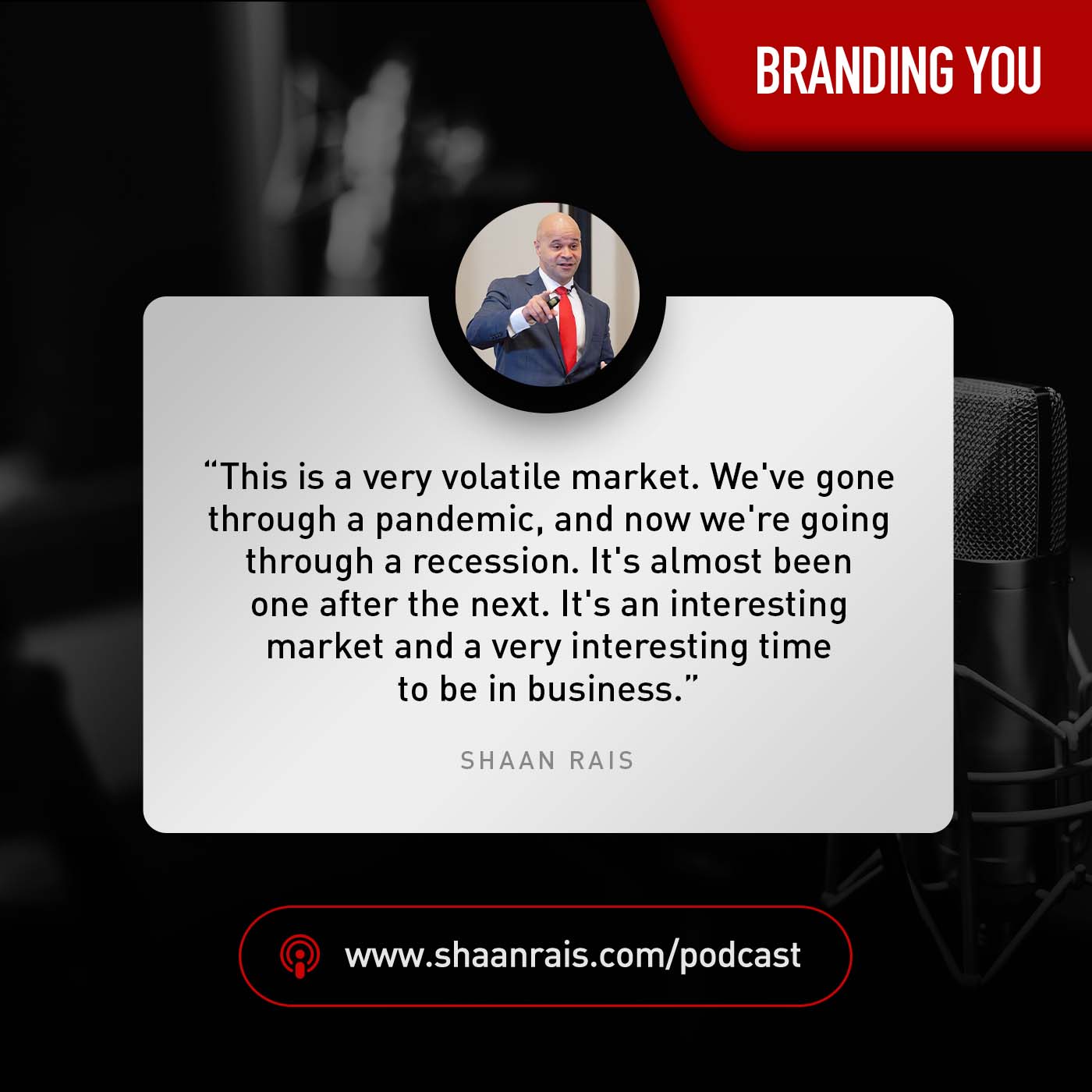
If you’re starting out, then the question is, are you starting out with a business? Are you starting out with a job? Are you starting out trying to start a business or buying a business?
Someone with a business, but they haven’t hit seven figures yet. In that volatile space, what is your advice to that individual? They are maybe just touching six figures.
If I were starting out and I wanted to grow as fast, profitably, and successfully, I would seek out people who are either doing the same thing that I’m doing but much more successfully outside of my competitive market. If I’m competing nationally and that’s not doable, I would find people doing something similar but not competitive and get them to partner with me to be not just my mentor but almost my mentor advisor for a share of the success to help me accelerate. I would try to go and license people’s ads, marketing, selling, system, or products.
I would use ingenuity to take advantage of success that was already validated. I wouldn’t try to recreate the wheel or start from scratch because it’s very dangerous. I would see if I could become the backend with somebody else’s business or organization that needed what I have. I would co-brand with people who had an audience that I could be a part of. I would figure out all kinds of ways to mine or tap into existing demand that I could fill so that I didn’t have to try to reach people cold on the outside market and establish for a small business that was starting out with credibility that I didn’t have. I could get instant credibility if I made these collaborations that I just talked about. That’s how I do it.
I want to make sure that you get the best value possible from Jay and the time that he has allocated to us. Jay, thank you so much. I know you’re a man about town. I thank you for your generosity with your time and your wisdom. I don’t take that lightly. I greatly appreciate it. Let me ask you this from a humble perspective, what is the best possible question that I’m not asking you that my audience needs to know right now?
It’s probably, what is the greatest form of advantage that anybody could give themselves who was an entrepreneur? I would say the answer is to be hopelessly curious. My greatest strength has come from my unstoppable curiosity. All my life, early in my life, and including today, I am obsessively interested in learning everything I can about everything I can. It gives you an enormous depth of understanding. Most people stick to where they’re interested, comfortable, and enjoy instead of the things they don’t.
There’s a book that was popular called Range. The premise is that the people that are going to own the next ten years or so in our country and in business are going to be the ones that have the greatest range and the greatest expansive understanding of all kinds of unrelated stuff. The past isn’t the future and you can’t draw on hindsight or insight. You’re going to have to be able to extrapolate and say, “This is what other things I understand,” and try to come up with advantages and breakthroughs.
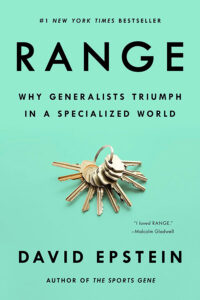
I find that my greatest advantage has been when I was able to access all the thousand different industries that I have had the ability to understand and be involved in. Years ago, we did very large and expensive seminars. After people got to trust us, we would do an exercise. We went out and bought thousands of print books or magazines on non-fiction topics, business, skills, and hobbies. We would have our team interview people and access and understand what they’re most interested in.
Let’s say my hobby was golf. We might give you either a magazine or a book about cake decorating and vice versa. If you were into management, we might give you a book on parenting, home birth, or something totally opposite. We would ask you to go back to your room or out in the lobby if you weren’t at the hotel and read either 2 chapters or 2 articles, come back to your table, and share two outrageously surprising insights you got from those that had a direct or indirect benefit to you and your business.
Ninety-nine percent of the people did, but they would never have extended themselves. If they hadn’t done that, then we would have the tables vote on the most universally fascinating insights. They then would present that one most fascinating insight from their table to the whole 800 people in the room. It was pretty amazing. The greatest thing you could do is transcend the limitations of your own interest, what you enjoy, or your hobby. Commit yourself to realize that the rest of the world is who you deal with.
The greatest thing you could do is transcend the limitations of your own interests.
They are your buyers unless you’re only selling one thing that you’re in. If you’re a boxer and you’re selling boxing material, that’s one thing. If you’re selling to a heterogeneous audience representing lots of different types or if you’re buying from vendors representing lots of different types or if people who work for you are people representing lots of different types, the more you understand, appreciate, relate to, respect, and communicate what drives their interest, not yours, the more powerful you will be in terms of success and connectivity. That’s my answer.
I’m inclined to ask you one final question. In all of your years of marketing and the powerful peers that you’ve been around, what is the most powerful thing that you have learned?
Do you know how in the medicine world and the natural healing world, there are wonder drugs or wonder ingredients? Penicillin is a wonder drug. Garlic is a wonder vegetable or whatever it is. Aspirin is an over-the-counter wonder drug. In marketing and in business building, the wonder concept is understanding the phrase, “Everything is tied to the reason why.”
You have to be able to understand and answer that question in every facet of business or life, “What is the reason why I should come to work for your company and not somebody else? What is the reason why I should invest in your startup? What is the reason why I should buy from your business? What is the reason why I should buy this water instead of sparkling water? What is the reason why I should believe your proposition? What is the reason why I should buy right now and not contemplate it?
It is not just business, “What is the reason why I should go out with you? What is the reason why I should get married to you or go to bed with you if you’re being crass? What’s the reason why a child should listen to you? What’s the reason why if you’re an advocate, political, or community?” When you understand the power of reason why, and you are able to incorporate it, address it, and provide it in a compelling way, then you win and your competitors lose.
When you understand the power of why and are able to incorporate, address, and provide it in a compelling way, then you win and your competitors lose.
We feel blessed and honored here. We would be remiss if we did not say that Jay is the embodiment of marketing genius. In the ‘70s, you were doing this. When did you begin?
I began doing this in 1971.
You’ve been doing this for long that anyone who doesn’t learn from this and embodies this as the most powerful information, could possibly behoove them to be spanked. They probably will, by life or business. When you go through the leading so-called titans and giants of this industry, they all bear witness to the myth, the man, and the marketing maven that is Jay Abraham. We are honored and privileged.
Thank you very much. I appreciate it.
Guys, I hope you come back to this revisit one million times. You’ll always be going to find something different. Get in contact with us on the part or behalf of, and get in contact with Jay Abraham, the marketing genius, the man, myth, and maven. Thank you so much, Jay. I greatly appreciate it.
I appreciate it.
